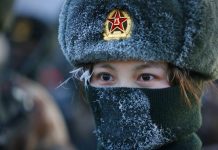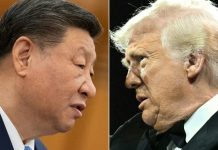Vietnam has emerged as an attractive foreign direct investment (FDI) destination in Asia by beating China and India, a report by the Economist Intelligence Unit (EIU) has indicated. The Southeast Asian nation has become a new hub for low-cost manufacturing in Asian supply chains.
India-China Economic Warfare Intensifies; After FDIs, India Could Block FPIs From China Too
The report suggests that factors that make Vietnam better than its peers are the incentives for international firms for setting up units to manufacture hi-tech products, the pool of low-cost workers, and the proliferation of free trade agreements.
The EIU report says that Vietnam has scored more than both India and China in the FDI policy. India remains behind both China and Vietnam in foreign trade and exchange controls.
Even in the labor market, Vietnam’s score is higher than in India. In simple terms, the labor market is supply and demand for labor. India, which has a population of 1.38, has been left behind by Vietnam, which has a population of 97.34 million people.
India has surprisingly fared low in its FDI policy among the 14 countries which were studied by the EIU. Except for Indonesia and Bangladesh, other countries have outscored India in FDI and the labor market. Both India and Indonesia have been pushing for labor law reforms and Bangladesh is negotiating 17 preferential and free trade agreements.
Pakistan performed worse than India in foreign trade and exchange controls and only Bangladesh was behind India in infrastructure. China continues to hold its position in infrastructure.
Meanwhile, the outlook remains bright for Vietnam, as per the report. It says Vietnam will continue to offer generous arrangements for international firms with incentives for investment.
The absence of specialized labor may pose a disadvantage to the business but the country’s low-skilled manufacturing wages will have competition. The report underlines that “Vietnam’s proliferating membership of free trade agreements represents a strong point of its trade relations, reducing export costs”.
What Makes Vietnam Investor-Friendly?
Ruchir Sharma, an emerging markets strategist at Morgan Stanley, says Vietnam’s FDI has averaged more than 6% of G.D.P, which is the highest ratio in any emerging country.
India was in line to become the next manufacturing hub in the region after companies began decoupling from China. It was the higher labor cost in China after 2013 which had led to the reduction in FDI and its distribution to other Asian countries.
The report rightly points out that Vietnam’s emergence as an alternative manufacturing hub to China predates a trade war between Washington and Beijing.
Something that has worked in the favor of Vietnam is the ever-changing policies as per the market demand. Former Prime Minister of Vietnam Nguyen Tan Dung had even written for the World Economic Forum that it was the vigorous changes in the business and investment climate that made the country attractive for FDI.
He also pointed out that socio-political stability and population structure helped win investors’ trust in the Vietnamese market. It is pertinent to mention that initially Vietnam had allowed the state-owned enterprise to compete with foreign investors but witnessing attacks on foreign-owned enterprises, the government immediately switched the policy.
The recent free trade agreement between Vietnam and the European Union has benefitted the country as the EU lifted 85 percent of its tariffs on Vietnamese goods in 2020. The report states the FTA’s biggest gains were witnessed by footwear manufacturers in Hanoi.
Around 40% of exports to the EU in footwear manufacturing faced 30% tariffs, which were completely withdrawn from August 2020. The country had registered FDIs worth over US$12 billion between January and April 2020.
Even amid the pandemic, by September 2020, the whole country attracted $21.20 billion or 81.1 percent compared to the same period last year, as per a report in Vietnam Briefing.




